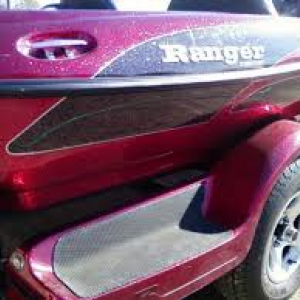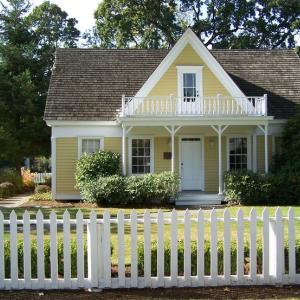We have all heard the term “pissin’ in the wind”, right? Well this story brings a whole new meaning to that statement. You haven’t lived until you have hung bare-bootied off the back of a boat… Just sayin’. This is not for the faint of heart. This is not for the weak. This makes you a total bad-ass. (That’s part of my “self” pep talk before I hung it all “out” in the wind)
This last week I went on a fishing extravaganza to Fort Peck Reservoir. After hearing about the monsters that lurk beneath the surface, I was pretty excited. I think that my excitement would have been dulled had I known I was going to show my booty to the entire countryside. What???
Have you ever seen those fancy boats, you know the kinds that are always racing past the family pontoon boat with their motors screaming and their glitter sparkling in the sunshine? I swear those things are spit-shined, meanwhile our trusty ol’ pontoon is covered in algae and is definitely built for comfort, not speed. If the owners of those sparkly boats gave my pack of barbarian children 5 minutes, the only sparkling that would be done would be from the tears of the captain after the little devils smeared worm dirt and Cheetohs across the plush leather seats and ground it into the carpet.
Anyways…Back to the story of my shame.
The whole trip over to the reservoir, the outdoorsman was teasing me, well I THOUGHT he was teasing me, about the fact that I would have to pee in a bucket on the boat. Apparently, they will not pull those fancy shcmancy boats ashore to let a poor woman tend to her business in private. He was having a hell of a time and laughing his butt off as he saw me getting twitchy in my seat. He kept telling me this, but I really didn’t believe him and didn’t really give it a second thought until it was too late.
As we pulled up to the boat launch, I look around and there is not a woman to be seen. Ok…I am wondering why…then we hop onto the boat and I instantly look around to scope out the facilities. But there are none. I don’t even see a pink bucket. I am starting to get nervous, which of course makes you have to pee. I quickly stop drinking my coffee; until I can find out the exact “situation” I am in. I begin to see a glimmer of hope when I see that our guide is a woman. Yay!! I was really stressing on how I was going to go #1 on a fancy schmancy glitter boat but now I THINK that I am saved. Surely this woman will have a trick up her sleeve that I am clearly missing. Boy, oh boy, was I right. She definitely had a trick and it was a trick I was definitely not sold on.
After hours and I mean literally hours of holding it, I decide I cannot take it anymore. The outdoorsman has peed 6 times. Yes, 6 freaking times. Every time he pees over the side of the boat I envision kicking him in the butt and knocking him out of the boat. I think this is the only time in my life I can honestly say that I have had “penis envy”. I can barely move I have to pee so horribly. I cannot stop thinking about pee and how long I can possibly hold it, which of course, makes it much worse. I so wish I could just whip out a weenie and take care of the situation. Cry…Cry… I sigh, sigh again and shift my weight for the tenth time. I better just go before my bladder literally bursts or the outdoorsman gets drowned for having a penis. And then finally, I bite the bullet and tell the others that I am going to dieeeee if I don’t go.
So….this is the play by play. All of the snickering men head to the back of the boat. I head to the front, pull down the my drawers, back up to the bow of the boat, grab the back of the front fishing seat, brace our feet on the edge and let er’ rip. No need to worry if someone can see your booty…I guarantee they can see the full moon for at least a mile. Now, you do not want to let your grip lesson, as you will fall straight into the lake and there is no need to wonder if the men in the back are peeking because you are facing them with your pants down, so you can see as they peek and giggle. Turds! I had to do this twice and I tell you what, I think I set a land speed record for peeing. I still turn bright red at the mere thought of my “position”. Once I was introduced to this method, I went on a liquids strike. I didn’t have a single drop of liquid all day long for fear that I would have use this special trick… Ahhhhh!! On the other hand, she did give me a little milk jug I could try in pee in also…Ummmmm…..
All of those turds smirk as they go to the back of the boat. So then it starts raining. Dear God, the traction on my shoes is not meant to grip the side of a super waxed side of a glittery boat in the rain. My frozen hands were slipping off the back of the wet leather chair even with the death grip I was doling out. Talk about feeling the pressure. I can’t even pee if I know someone is sitting outside the bathroom door. It’s just weird to listen to someone pee. If I hadn’t of been holding a gallon on coffee from 6 am until 2 pm, I just might not have been able to take care of “bidness”. But luckily, my bladder vetoed my brain and let me go, even with the fear of falling in the freezing lake and getting eaten by a monster pike. If I fell in the lake, half naked, I would never, ever, ever live it down. And the fishing day would be over because I would be a frozen, drowned rat. Given that I didn’t want to rain on the fishing parade, I held on for dear life.
I must say this was all worth it though, I think the fish must have felt bad for me because I out-fished the outdoorsman like a boss. Oh yeahhhhhhh!!!!!
On a side note…Someone told me about this device, The GoGirl. This certainly has merit…
 Kristen Berube lives a crazy, laugh-filled life with her outdoorsman husband Remi and their three camo-clad children in Missoula, Montana. A graduate of Montana State University and the Northern Alberta Institute of Technology, she loves being a mom and enjoys hiking, fishing, and camping. “Confessions of a Camo Queen: Living with an Outdoorsman” is her first book.
Kristen Berube lives a crazy, laugh-filled life with her outdoorsman husband Remi and their three camo-clad children in Missoula, Montana. A graduate of Montana State University and the Northern Alberta Institute of Technology, she loves being a mom and enjoys hiking, fishing, and camping. “Confessions of a Camo Queen: Living with an Outdoorsman” is her first book.
It is available for purchase at:
http://www.amazon.com/dp/1560376287/ref=tsm_1_fb_lk






